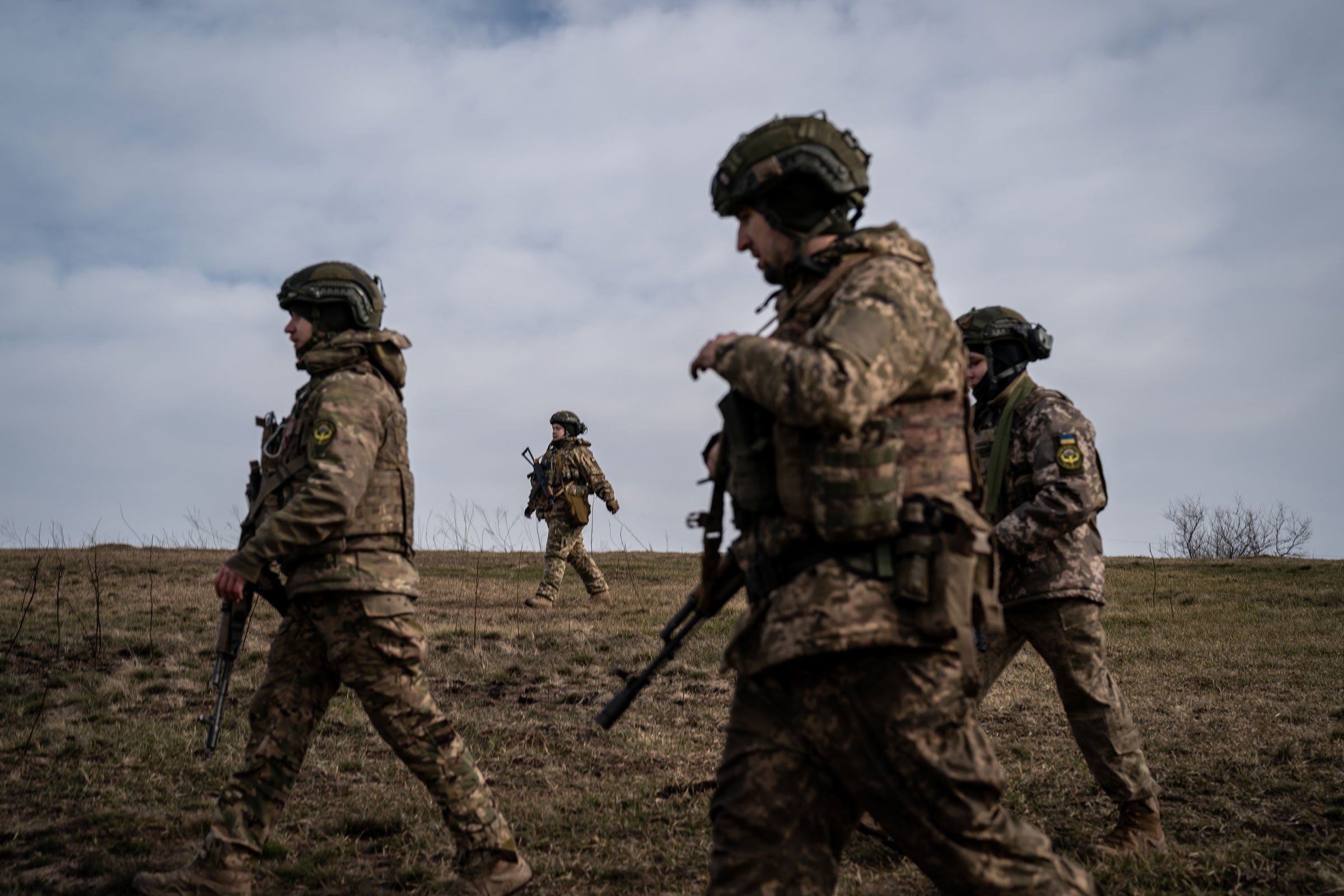“The soldier above all others prays for peace,” the former American military general Douglas MacArthur once said, “for it is the soldier who must suffer and bear the deepest wounds and scars of war.” But what about peace with oneself?
More than 120,000 U.S. veterans have died by suicide since record keeping began in 2001, according to Veterans Affairs department data. Many more, in the U.S. and elsewhere, suffer from post-traumatic stress disorder (PTSD) as conflicts spiral around the world. Ukraine’s health ministry estimates that 3 to 4 million people in the country live with PTSD.
Amid this mental health catastrophe, authorities have begun turning to psychedelics for help—and for good reason.
On Feb. 21, Ukraine’s special parliamentary commission responsible for the medical care of veterans and service personnel, voted to establish a working group to assess the effectiveness of MDMA-assisted therapy on PTSD. “We have to deal with mental health issues,” Minister of Healthcare Viktor Liashko, who still needs to sign off on the group, told Ukraine’s official parliament TV channel, “[and examine] how new methods will help quickly and qualitatively.” In December, the U.S. Congress voted to study the effects of psychedelic therapy on soldiers suffering from PTSD and traumatic brain injury. In Israel, a study that would treat Oct. 7 survivors with PTSD, including soldiers, with MDMA could get underway later this year.
The current conventional treatments for PTSD include cognitive behavioral therapy and the FDA-approved antidepressants Zoloft and Paxil. Patients may also be prescribed antipsychotic medications, and benzodiazepines. But, for many veterans, these options are ineffective, and can lead to serious side-effects.
The adoption of psychedelic-assisted therapy could represent a tectonic shift in psychiatry around the world. Research suggests that the psychedelic drug MDMA, an empathogenic stimulant also known as Molly or ecstasy, can spark changes in the brain that induce a childlike state of neuroplasticity and help forge new neural connections. (It could well be approved for PTSD by the U.S. Food and Drugs Administration in August after two advanced stage trials showed significant benefits.) Researchers are also studying other psychedelics as well, like the powerful drug ibogaine.
But Ukraine may be at the vanguard given its wartime realities. Some soldiers have already received legal ketamine, a dissociative anesthetic with some hallucinogenic effects, at private clinics. Dr. Vladislav Matrenitsky, who began working with ketamine in 2018, a year after it was permitted for medical use, is now seeking funding for a study to build on existing research in an effort to bring ketamine therapy toward mainstream healthcare in Ukraine. Underground practitioners elsewhere also provide MDMA and psilocybin therapy, which is illegal.
Meanwhile, efforts are underway to remedy a serious shortage of therapists trained to provide the requisite support before and after psychedelic treatment. Some 15 Ukrainains attended a psychedelic therapist training program in Sarajevo in December, convened by the Multidisciplinary Association for Psychedelic Studies, the organization behind the MDMA-assisted therapy studies in the U.S. Hundreds of mental health specialists have also signed up for an online psychedelic therapy training program with U.S. company Fluence.
The use of drugs by soldiers during war, both to recover and as battle stimulants, is nothing new. During World War II, the U.S. army treated soldiers suffering with “shell shock” with sodium amytal, or “blue heavens.” It would precipitate a deep sleep of more than 24 hours and most returned to combat within days. But the powerful sedative is addictive and has serious side-effects, and soldiers eventually stopped using it.
Methamphetamines were central to Nazi Germany’s high octane blitzkrieg strategy, and the stimulant was also given to Japanese, U.S., and British troops to keep fatigue at bay and improve endurance. A report published in May by the Royal United Service Institute suggested that Russian soldiers in Ukraine are being given amphetamines before battle. Small numbers of Ukrainian soldiers, in the highly decentralized army, are also experimenting with ibogaine—which is a potent stimulant in low doses—to improve battle preparedness.
But there are concerns among experts over the use of hallucinogens by active duty soldiers, especially if intended to improve combat readiness, or in the trenches to reduce the fear of death. Research suggests that MDMA and ketamine can help treat PTSD but more study is needed into these and other psychedelics. “We should decide wisely how we use these medicines,” Leor Roseman, a neuroscientist at the University of Exeter, told TIME. “Psychedelic therapy should not be undertaken lightly to heal soldiers and just put them back into the field.”
For some Ukrainians, who view the conflict with Russia in existential terms, they view the use of psychedelics primarily through a wartime lense. “It’s not a choice between war and a peaceful life for a lot of people,” Oleh Orlov, the chair of the Ukrainian Psychedelic Research Association (UPRA) and deputy director for research at the Mykola Yarmachenko Institute of Special Education and Psychology, told TIME. “It’s between existing and not existing.”
Some Ukrainian troops have already reportedly returned to the frontlines after receiving psychedelic treatment. Welcome to psychedelic psychiatry’s brave new world, sanctioned or not, where much more research is needed.

